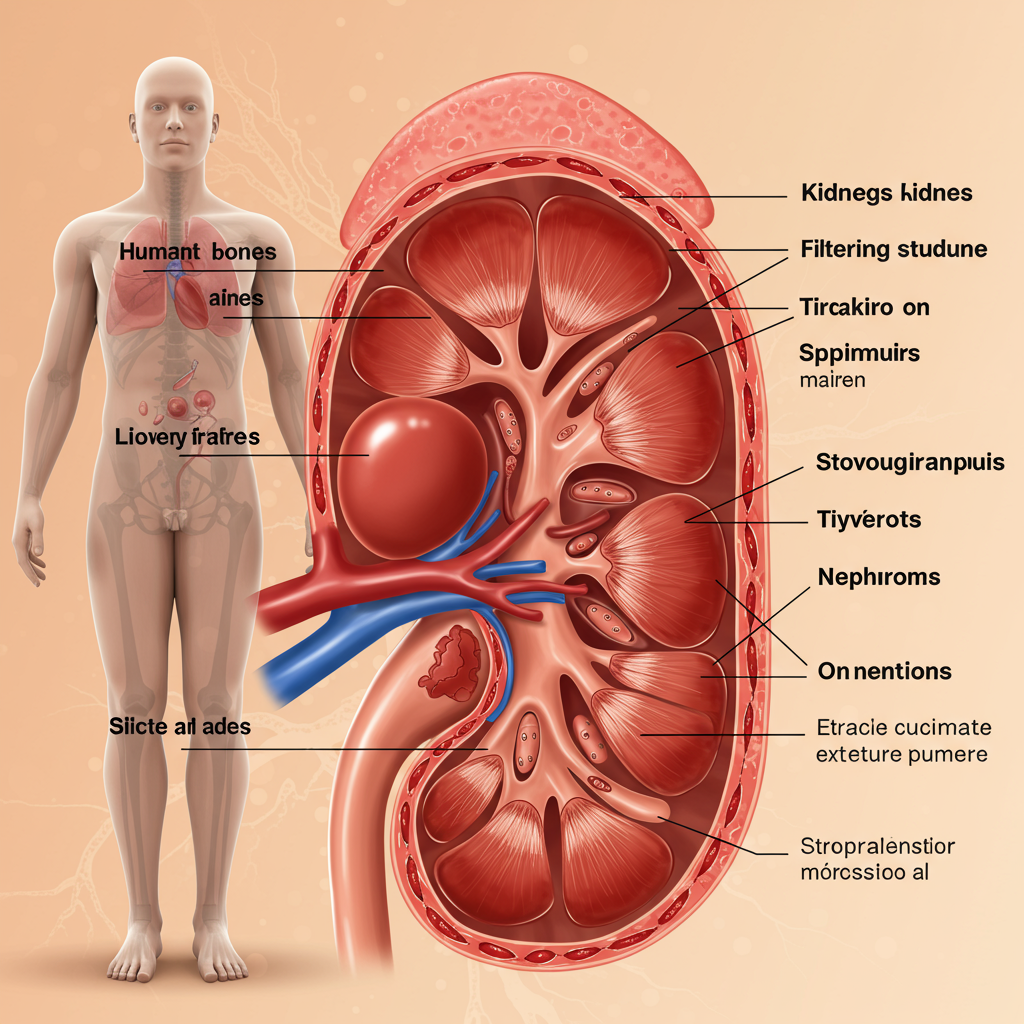Your kidneys are remarkable organs that work tirelessly behind the scenes to maintain your body's delicate balance. Yet, despite their critical importance, they rarely get the attention they deserve until problems arise. As rates of diabetes and metabolic dysfunction continue to climb, understanding kidney health has never been more important. Let's explore how these vital organs function, why they're vulnerable to damage, and what steps you can take to protect them.
The Kidney's Multifaceted Role: More Than Just Waste Filters
When most people think of kidneys, they imagine simple filters that remove waste from blood. While filtration is indeed a crucial function, your kidneys do far more:
- Blood pressure regulation: They help control blood pressure by managing fluid levels and producing hormones that signal blood vessels to constrict or dilate.
- Electrolyte balance: Kidneys carefully maintain the precise levels of sodium, potassium, calcium, and phosphorus your body needs.
- Vitamin D activation: They convert vitamin D into its active form, essential for calcium absorption and bone health.
- Hormone production: Kidneys produce erythropoietin, which stimulates red blood cell production, and other hormones that regulate metabolism.
This complex system processes about 150 quarts of blood daily, producing 1-2 quarts of urine. What's remarkable is that all this happens through millions of microscopic filtering units called nephrons, which become fewer and less efficient as we age. This natural decline makes protecting the nephrons we have particularly important.

The Silent Decline: Why Kidney Damage Often Goes Unnoticed
Kidney disease has been called a "silent killer" for good reason. By the time symptoms become noticeable, significant damage has often already occurred. The kidneys' extraordinary reserve capacity means you can lose up to 50% of kidney function before conventional tests detect problems.
Early warning signs that are often overlooked include:
- Frequent nighttime urination
- Foamy or bubbly urine (indicating protein leakage)
- Mild swelling in ankles or feet
- Fatigue that seems disproportionate to activity
- Slightly elevated blood pressure
What makes this particularly concerning is that early kidney damage is often reversible, while advanced disease usually isn't. This makes regular testing crucial, especially for those with risk factors like diabetes, hypertension, or family history of kidney problems.
Important markers to monitor include:
- eGFR (estimated Glomerular Filtration Rate): Measures how well kidneys filter blood
- Creatinine: A waste product that rises when kidney function declines
- BUN (Blood Urea Nitrogen): Another waste product that kidneys should remove
- Albumin-to-creatinine ratio: Detects small amounts of protein leakage, often the earliest sign of kidney damage

The Metabolic Connection: Why Diet and Lifestyle Matter
The modern Western diet poses a significant threat to kidney health. High consumption of sugar, refined carbohydrates, and ultra-processed foods creates a cascade of metabolic disruptions that directly impact the kidneys:
- Elevated blood glucose damages the delicate filtering structures within nephrons
- Insulin resistance promotes inflammation and hypertension, further stressing kidneys
- Advanced glycation end products (AGEs) accelerate kidney aging and scarring
- Metabolic acidosis from poor diet requires kidneys to work harder to maintain pH balance
Traditional diets with minimal refined sugar and processed foods show significantly lower rates of kidney disease. This isn't coincidental – our kidneys simply weren't designed to handle the metabolic stress of modern eating patterns.
The good news is that dietary changes can make a profound difference. Research suggests that even partially damaged kidneys can recover function when the metabolic environment improves. Here's what helps:
- Balanced protein intake: Neither very high nor very low protein diets – aim for moderate, high-quality protein sources
- Adequate hydration: Simple but effective, proper water intake reduces kidney strain
- Metabolic health: Maintaining healthy blood glucose levels and insulin sensitivity protects kidney function
- Blood pressure control: Keeping blood pressure in optimal range (not just "normal") significantly reduces kidney stress
- Avoiding nephrotoxins: Certain medications, excessive alcohol, and some supplements can damage kidneys

Conclusion: A Proactive Approach to Kidney Health
Your kidneys deserve attention long before problems arise. By understanding their complex functions and vulnerabilities, you can take meaningful steps to protect these vital organs through dietary choices, lifestyle modifications, and appropriate monitoring.
Rather than waiting for standard markers to indicate trouble, consider working with healthcare providers who understand the importance of earlier, more sensitive testing. Small changes implemented early can prevent significant problems later – a principle that applies to kidneys perhaps more than any other organ system.
Remember that kidney health reflects overall metabolic health. By taking steps to protect your kidneys, you're simultaneously supporting cardiovascular health, metabolic function, and longevity. In the journey toward optimal health, few investments yield greater returns than protecting these silent, essential guardians.
References:
Rhee CM, Kovesdy CP, Kalantar-Zadeh K. (2018). Low-protein diet for conservative management of chronic kidney disease: a systematic review and meta-analysis of controlled trials. Journal of Cachexia, Sarcopenia and Muscle, 9(2), 235-245.
Wanner C, Inzucchi SE, Lachin JM, et al. (2016). Empagliflozin and Progression of Kidney Disease in Type 2 Diabetes. New England Journal of Medicine, 375(4), 323-334.






